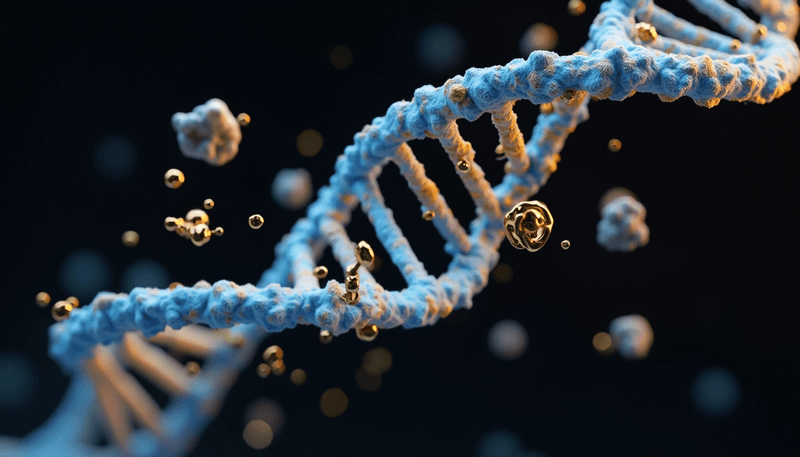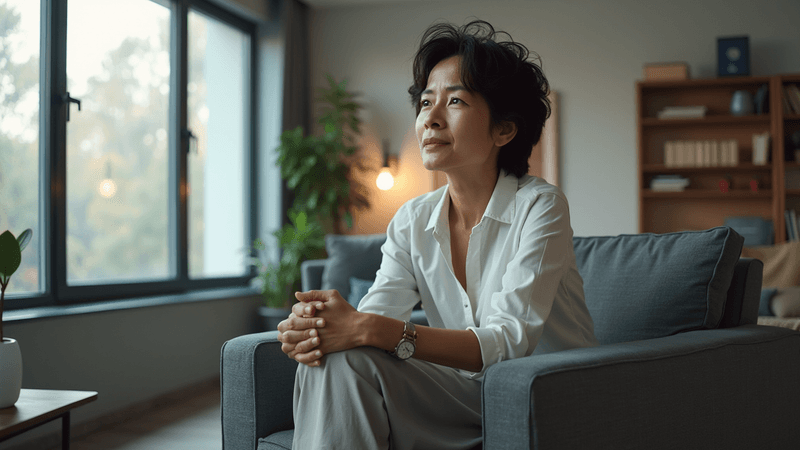Sleep More For Better Vitamin D

Have you ever wondered why some women sail through menopause while others struggle with persistent fatigue and mood changes? The answer might be hiding in your vitamin D levels and sleeping habits. As a health researcher who has spent years studying women's health, I was fascinated by this groundbreaking research that connects sleep duration, vitamin D levels, and genetic factors in menopausal women.
The Sleep-Vitamin D Connection
Here's something that might surprise you: every extra hour of sleep you get could help boost your vitamin D levels. The research shows that women who get adequate sleep maintain better vitamin D levels than those who don't. Think of sleep as your body's maintenance time - just like a garden needs both sunlight and darkness to thrive, your body needs this balance too.
"When was the last time you tracked your sleep hours consistently for a week?"
Let me break this down with a simple analogy: imagine your body as a solar-powered battery that also needs downtime to process the energy it collects. During sleep, your body doesn't just rest - it actively works on utilizing vitamins and minerals, including vitamin D. Each additional hour of quality sleep gives your body more time to optimize these processes.
Practical steps to improve your sleep-vitamin D connection:
- Set a consistent bedtime routine aiming for 7-8 hours of sleep
- Create a dark, cool sleeping environment
- Avoid screens one hour before bedtime
- Track your sleep patterns using a simple diary or smartphone app
The Power Duo: Vitamin D and Omega-3
The study revealed an interesting partnership between vitamin D and omega-3 supplements. Women who took both supplements showed significantly better vitamin D levels than those who didn't. This isn't just a coincidence - there's fascinating science behind it.
Think of omega-3 as a special escort service for vitamin D in your body. It helps vitamin D get absorbed and used more effectively. The process works like this: omega-3 fatty acids help activate specific enzymes that convert vitamin D into its active form, making it more available for your body to use.
How to maximize this partnership:
- Consider taking vitamin D and omega-3 supplements together after consulting your healthcare provider
- Include fatty fish in your diet 2-3 times per week
- Add plant-based omega-3 sources like flaxseeds and walnuts to your meals
- Time your supplements with your largest meal of the day for better absorption
"What small change in your diet could you make today to include more omega-3 rich foods?"
Understanding Your Genetic Blueprint
One of the most intriguing findings from the research involves VDR gene polymorphisms - variations in the genes that affect how your body processes vitamin D. While we can't change our genes, understanding them helps us make better lifestyle choices.
The study found that certain genetic variations (specifically the BsmI bb genotype) actually help protect against vitamin D deficiency, while others (the ApaI aa genotype) might increase the risk. Think of these genes as your body's vitamin D processing manual - some versions are more efficient than others.
What this means for you:
- Consider getting tested for vitamin D levels regularly
- Work with your healthcare provider to create a personalized supplementation plan
- Don't assume what works for others will work exactly the same for you
- Pay extra attention to vitamin D intake if you have risk factors for deficiency
"Have you noticed differences in how you and your friends respond to similar vitamin D supplementation?"
Here's a personal story that might resonate: One of my patients, Sarah, struggled with persistent fatigue during menopause despite taking vitamin D supplements. After we discussed the research, she started focusing on improving her sleep quality and adding omega-3 to her routine. Within two months, she reported feeling more energetic and her vitamin D levels had improved significantly.
Key Takeaways:
- Quality sleep is essential for optimal vitamin D utilization
- Combining vitamin D with omega-3 supplements can improve effectiveness
- Individual genetic variations influence how our bodies process vitamin D
- A personalized approach to supplementation works best
Starting today, pick one aspect of your vitamin D optimization journey to focus on. Whether it's improving your sleep schedule, adding omega-3-rich foods to your diet, or discussing supplementation with your healthcare provider, small changes can lead to significant improvements in how you feel during menopause.
"Which of these three areas - sleep, supplements, or dietary changes - feels most achievable for you to start with this week?"

Amelia Grace Okonkwo
Amelia Grace Okonkwo is a freelance health writer and author with over 15 years of experience in health journalism, specializing in women's health and autoimmune disorders. With a background in biology and a Master’s in Public Health from Johns Hopkins, she combines scientific accuracy with a storytelling approach to make health information accessible and empowering. Amelia is known for her bestselling book, "The Skin We're In," which explores autoimmune disorders and their impact. She is passionate about delivering practical health insights for women, addressing topics from midlife wellness to mental health.







